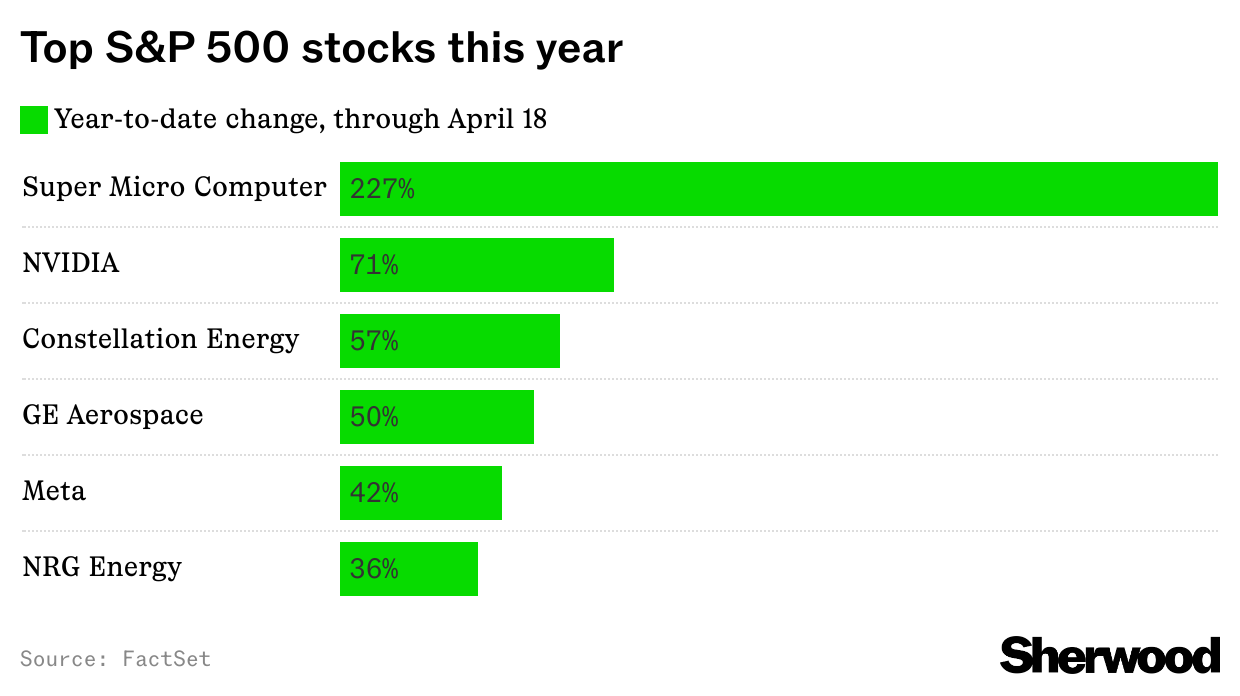Thursday Sep.02, 2021
🌧 Ida's impact
_"Ladies, can I see some ID?" [praetorianphoto/E+ via GettyImages]_
Hey Snackers,
Save the last square: Americans are stocking up on toilet paper again. Charmin and Bounty maker Procter & Gamble is running factories 24/7 to meet surging TP demand.
The techy Nasdaq index inched up to a record yesterday. The S&P 500 index, which broadly tracks the US stock market, hasn’t dropped more than 5% since October and has clinched 50+ fresh highs in 2021.
Ida
Storm watch: Hurricane Ida's impact on consumers and businesses across industries
Center of the storm... Hurricane Ida reached the US Gulf Coast on Sunday as a Category 4 hurricane. For context: Category 5 is the highest. It's the most intense hurricane Louisiana has suffered since Hurricane Katrina in 2005. Ida has already led to six deaths, and left 1M+ people without power.
From small businesses to energy giants... Ida's impact is far-reaching. Damage to the power grid and other infrastructure has been intense — even more than Katrina's in some cases.
- Electricity: The entire city of New Orleans lost power after all of its transmission lines were knocked out. Restoring full power and A/C could take weeks, though Entergy — which provides electricity to 3M customers in LA, MS, AK and TX — says it's already been restored for 100K people.
- Oil and gas: Gas prices are rising after Ida shut down a critical swath of US oil operations, including more than 90% of production in the Gulf of Mexico. Big deal, since Louisiana’s 17 oil refineries account for 20% of the US' capacity.
- Insurance: The insurance industry expects Ida damages to be in the range of $15B-20B, compared to $65B for Katrina. But that's just insured losses — aka: not the total value of damages. CoreLogic estimates that ~1M homes could be damaged, totaling $220B in reconstruction costs. And insurance costs are already rising for high-impact areas and homes with older roofs.
It can take years to bounce back... from natural disasters. A hurricane might only last a week, but the damage it causes can take years — or decades — to repair. New Orleans has still not fully recovered from Katrina, and we don’t yet know what Ida’s total toll could be. Meanwhile, CA is experiencing extreme heat-fueled wildfires. Climate experts say these extreme natural events could worsen as the planet continues to warm.
Key
Apple continues its wallet takeover with a virtual driver’s license — and keys are next
Got my driver's iLicense last week… Yesterday, Apple partnered with eight US states to launch digital driver’s licenses on iPhones and Apple Watches. Apple emphasized that its new IDs are “more secure” than IRL licenses. The e-licenses will roll out in Apple Wallet after an iOS update this fall. How they’ll work:
- Scan your license with your iPhone, like you’d scan a card for Apple Pay.
- Take a cute selfie that’ll be sent to your state for verification.
- Twist your head around for a biometric scan with Apple’s FaceID tech.
- Sail through security by tapping your iPhone or Apple Watch and scanning your face or your fingerprint at TSA. TBD if the police will accept it for traffic stops.
Plastic is so 2020… Apple Pay is the top mobile payment tool in the US, with 44M users. But Pay is only the beginning: Apple wants to take over your whole wallet, purse, and keys. After touting privacy for years, Apple hopes customers will trust its devices as all-in-one passkeys to everything:
- Leave the purse at home… In addition to in-store payments, Apple Wallet can be used to: ride public transit, check in to concerts, and store boarding passes and health insurance cards.
- No keys, no problem… Apple Wallet can already be used to unlock cars, and even access some college buildings. Soon, Wallet will also be able to unlock homes, hotel rooms, and offices.
- Not just Apple… Competitors including Google and Clear Secure are also building digital IDs. The e-ID market is expected to double between 2021 and 2026.
IDs are the next step in smartphone dependence… Every day, billions of people use smartphones to chat with friends, order food, book rides, watch shows, and navigate. Now, Apple wants iPhone to be the only thing people grab when they go out. By positioning its devices as all-in-one wallets, keys, and health monitors, Apple hopes to make iPhones and Apple Watches truly indispensable — and gain an edge over other smartphone makers.
What else we’re Snackin’
- Hired: Walmart is looking to hire 20K supply chain workers, and Amazon plans to add more than 40K corporate employees as the labor shortage continues.
- Pill: OxyContin maker Purdue Pharma won approval of a $4.5B bankruptcy settlement that shields its owners from lawsuits accusing them of fueling the US opioid epidemic.
- Booted: Virginia Tech disenrolled 134 unvaccinated students to crack down on Covid violations. Other universities and businesses could follow in its footsteps.
- Restart: A group of US business leaders asked President Biden to resume tariff negotiations with China after the trade war stalled previous talks.
- Gig: Massachusetts gave the green light to move ahead with a proposed ballot that could help gig companies like Uber keep classifying workers as independent contractors.
Thursday
- Weekly jobless claims
- Earnings expected from Broadcom, DocuSign, Hormel, and American Eagle Outfitters
Authors of this Snacks own shares of: Apple, Walmart, Amazon, Uber, and Clear Secure
ID: 1823924
.png)

